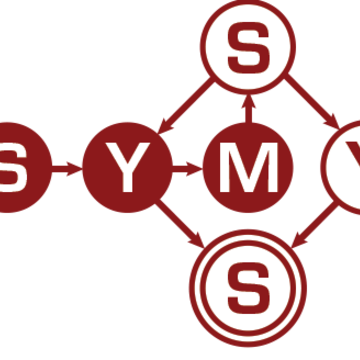SSP Forum: Josh Kornberg and David Shacklette (M.S. Candidates)

The
Symbolic Systems Forum
presents
Left to Our Own Devices: Smartphone use, Mental Health, and Tech Responsibility
Josh Kornberg (M.S. Candidate)
Symbolic Systems Program
and
Linking Behaviorally Relevant Processing Speed and the Neurobiology of White Matter: A Potential Bridge Between Neuroscience and Education Research
David Shacklette (M.S. Candidate)
Symbolic Systems Program
Monday, November 16, 2020
11:30 am - 12:30 pm
Join from PC, Mac, Linux, iOS or Android (requires logging in to a Zoom account): https://stanford.zoom.us/j/99713091022?pwd=b0hna3VRUkFWWHl0TUEwcTRQYktwQT09
ABSTRACTS:
(1) Josh Kornberg, "Left to Our Own Devices: Smartphone use, Mental Health, and Tech Responsibility" (Primary Advisor: Laura W Roberts, Psychiatry and Behavioral Sciences)
Smartphones are often necessary for daily life. Yet there is growing scholarly and public awareness of negative associations between smartphone use and mental health. Over the past decade, three narratives have emerged. First, the Attention Narrative argues that smartphones undermine focused attention by allowing technology companies to penetrate time, space, and attention previously safe from commercial exploitation. Second, the Poison Narrative argues that prolonged, regular smartphone use causes mental illness, particularly depression. Third, the Problematic Use Narrative argues that excessive smartphone use is a pathological behavioral addiction. Ultimately, strong evidence supports only the Attention Narrative. Numerous research studies demonstrate that smartphones undermine focused attention, and case studies show that popular apps are specially designed to maximize engagement, often at the user’s expense. Given that most users cannot abstain from their smartphones, technology companies ought to make it easier for users to manage their screen-time. Technology companies are responsible for allowing users to choose more freely how they spend their attention.
(2) David Shacklette, "Linking Behaviorally Relevant Processing Speed and the Neurobiology of White Matter: A Potential Bridge Between Neuroscience and Education Research" (Primary Advisor: Bruce D. McCandliss, Education)
There is a large body of literature that has surfaced over the past few decades connecting the notion of behaviorally relevant processing speed (roughly the speed at which a person can understand and react to information they receive via their senses) and the structural integrity of white matter pathways (roughly the degree of healthy myelination present in particular WM tracts). More recently, optogenetic manipulations of the mouse brain has provided evidence that the relationship between white matter pathways and processing speed may be rooted in mechanism. In this forum, I will discuss experimental manipulations/designs that could potentially support a mechanistic interpretation of this link in humans, as well as discuss implications this mechanistic interpretation would have for the budding field of educational neuroscience and approaches to learning more generally.